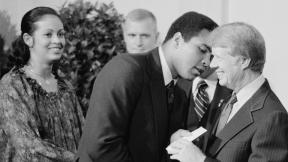
Most Muslims seeking the help of a marriage counselor will be referred to counselors who have been trained in the mainstream social services and counseling system.
That means that both they and their counselors need to be prepared to handle the difference in worldviews and ethics this entails.
Below are some guidelines for marriage counselors, whether non-Muslim or Muslims who are trained in the mainstream system, that can help are useful, Insha Allah (if God wills).
1. Assess the religiosity of the couple
A counselor needs to understand what place Islam has in the life of the couple together and individually.
If both of them are committed to Islam, be ready to change the counseling model you normally use. This couple is going to need a different approach.
Assessing religiosity is not as simple as finding out whether one or both partners prays five times a day or fasts in Ramadan, for example.
Rather, it will be evident in the couple's worldview, together and individually, and how they talk about Islam, as well as the kind of things they disagree about.
2. Leave the door open for requests
If this is their first time seeing a marriage counselor, the couple in most cases will have no idea what to expect.
They may be shocked or surprised or downright refuse to do a number of things you suggest. For instance, suggesting divorce as the first option, or encouraging them to date other people for a while will be unacceptable.
Make it clear from the beginning that you are open to their needs and suggestions. If they would like to try an approach to solving their problems that is more in line with their ethical values as Muslims, be prepared to help them with this.
3. Contact a Muslim Social Services organization
One of the best is the Islamic Social Services Association of the United States and Canada (ISSA). They can provide professional help and guidance in this area and guide you with issues and problems that will come up specific to Muslim couples.
4. Understand the culture
Talking to Muslim professionals through organizations like ISSA can help you get a better idea of what to expect because there are certain religious particularities Muslims have which, in contrast to mainstream North American culture, are very distinctive.
For instance, you may, as a counselor, understand why a wife will be frustrated and upset at a husband who has cheated on her. However, you may not realize that a husband's casual drinking is also a problem for a Muslim wife because alcohol is prohibited in Islam.
This is an issue relating to faith and in a number of cases causes serious friction in Muslim marriages.
5. Remember that all cultures have similarities
On the other hand, you will also find a number of similarities between Muslim culture and mainstream North American culture. For example, adultery on the part of a spouse is also unacceptable in Islam.
6. Understand the importance of swearing on the Quran and understand the importance of the Quran
The Quran is the Muslim holy book and is the literal word of God. At times during your counseling, you may deal with a Muslim couple who swear on the Quran to have done or not have done something.
For Muslims, such oath taking is not to be taken lightly, as this is the Word of God and when a Muslim swears on the Quran, s/he is swearing on the Word of God.
7. Know the ethnic culture the couple is coming from
This is very important amongst Muslims because cultural variations affect views on marriage and divorce.
For instance, Muslims from the Indian subcontinent (India, Pakistan, Bangladesh) tend to see divorce as something to be avoided at almost any cost, and remarriage after divorce as something very difficult.
Muslims from certain parts of the Middle East on the other hand, tend to have a different view. Divorce is more accepted and remarriage after divorce is considered positive and encouraged.
It is also important to understand that the cultural variations may not always be in line with Islamic values. For instance, in a number of Muslim households, you may find the husband and father acting in a dictator-like fashion with his family. This is not uncommon in a number of cultures, both Muslim and non-Muslim, but it is not Islamic behavior.
8. See how much influence the couple's families have on their relationship
Muslim families tend to be very tight knit and that means mom and dad may have more control over their kids even after marriage than amongst other religious or cultural groups.
Don't be surprised if a parent calls you before a session with their child and his/her spouse to tell you what to advise kids or afterwards to ask you report what they discussed in your session with the couple.
In these cases, it is best to politely acknowledge their feelings of concern for their children. However, maintain your professionalism and as with any other case, don't disclose this information.
9. Consult with scholars when it comes to matters of Fiqh (Islamic law)
There may be a number of issues from an Islamic legal perspective which the couple may bring up and you may not know about. In these cases, the best thing to do is to consult a reputable Islamic scholar in your area. ISSA once again can help in this area.
10. Take your time with the case
As with all other cases, you will have to get to the root of the marital conflict. If the couple feels that you are rushing with their case, they will probably stop coming. Take your time to get to the meat of the conflict.
As well, remember that since you are dealing with individuals with a different worldview, more time and effort may be needed to help them.
11. Don't push things under the carpet
Open discussion is one of the core methods of counseling warring couples. Issues need to be brought out in the open so that the couple can discuss them.
In many cases, the husband and/or wife may be surprised to discover the bitter feelings and anger their spouse may have over an issue. Helping the couple talk about their problems openly in a comfortable atmosphere, instead of pushing things under the carpet, can lead the couple to the road to recovery.
12. Don't make assumptions about the couple
You may have set views on Islam, Muslims and Muslim families. However, be prepared to set these aside and look at each case on its own.
Don't assume the husband will act a certain way or a wife will act a certain way. While there are similarities amongst Muslims, each case is unique.
13. Pay attention to language
Language may be a barrier if the husband and/or wife does not speak English or does not speak it very well.
It's important not to take things too literally, as certain phrases may simply be expressions of extreme distress or unhappiness, but do not indicate their literal meaning.
For example, a Muslim woman in an abusive relationship may have a very strong emotional response and could say, 'I'd rather die, this is the end of the world for me.' Things like that must not be taken literally.
14. Understand the dynamics of power
It's important to keep in mind that when counseling Muslim couples, especially families in which women and children are in a power relationship with the husband and father, that a wife and the couple?s children may not feel comfortable talking in front of him.
In this case, don't be too pushy in the joint counseling sessions to make the wife or in the case of family counseling, the children, talk. This will probably open up in the individual sessions.
15. Make the clients feel responsible
It's important to include the clients in finding solutions to their problems, including them in the process of sorting out their problems.
As well, stress that each partner has to individually look at what he or she contributed to the problem and how they can overcome that difficulty in the relationship. If the couple feels that you are moving them towards finding the solution to their own problems, they are more likely to implement the changes and make an effort to improve the relationship.








Comments
children
My husband and I have been planning to have a child. He is muslim and I am Christian and he just told me today that he do not want to have kids with me because I am a Christian. I am confused and hurt. I do not feel God don't want us to start a family just because we have a few different beliefs. I do not hate his beliefs because I believe in the old testaments as well as the new testaments. I think he feel like my beliefs will have a negative effect on our child. I want a family with this man but he have truly hurt me. I thought we would be ok because he is suppose to accept me as a Christian and love me but now I'm not sure if he is the right man for me. What would you do I need some advice so I can feel better. This is not fair to me because I want a family
Location
Reply
Hi Danielle, I’m seeing it just now and hoping things have worked out for you by now. However, posting it just for reference here that in terms of shariah the marriage between a Muslim man and Christian Woman is considered okay so technically the guy shouldn’t object on having kids with you. If his concern is about the upbringing of the child and the religion he or she will follow, that’s something you guys should discuss...
very interesting and informative.
Location
Add new comment